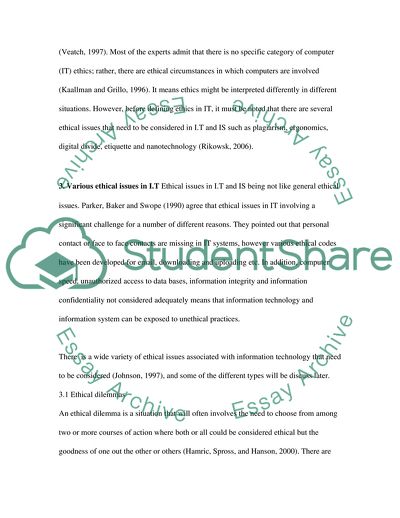Cite this document
(Unethical Behavior in Information Technology and Information Systems Research Paper, n.d.)
Unethical Behavior in Information Technology and Information Systems Research Paper. https://studentshare.org/information-technology/1746355-ethics-issues-in-isit
Unethical Behavior in Information Technology and Information Systems Research Paper. https://studentshare.org/information-technology/1746355-ethics-issues-in-isit
(Unethical Behavior in Information Technology and Information Systems Research Paper)
Unethical Behavior in Information Technology and Information Systems Research Paper. https://studentshare.org/information-technology/1746355-ethics-issues-in-isit.
Unethical Behavior in Information Technology and Information Systems Research Paper. https://studentshare.org/information-technology/1746355-ethics-issues-in-isit.
“Unethical Behavior in Information Technology and Information Systems Research Paper”. https://studentshare.org/information-technology/1746355-ethics-issues-in-isit.


